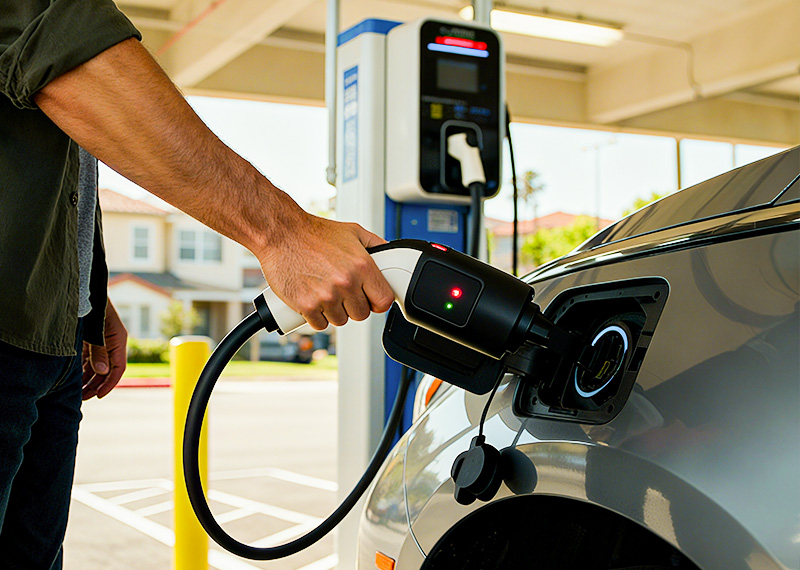
From gas stations to electric vehicle charging stations, the way we fuel up is changing—but the need is still the same. Whether you drive across town or across states, you want power when and where you need it.
In the world of EV charging, the Level 2 EV Charger has become the go-to choice for homeowners, business parks, and commercial venues. It fills the battery in just a few hours, offers a stable and secure connection, and integrates well into your daily routine.
Whether you’re a homeowner planning to install a charger in your garage or a property manager looking to deploy a charging network—this article covers everything. We’ll break down how a Level 2 charger works, its charging power and speed, what it costs, and how it stacks up against Level 1 and DC fast charging.
What is a Level 2 EV Charger?
A Level 2 charger runs on 240-volt AC power. That’s significantly more than the 120 V system used for Level 1. Most units deliver between 3.3 kW and 19.2 kW.
They use a standard SAE J1772 connector for most non-Tesla vehicles. Tesla owners can still use one via an adapter or a Tesla-branded cable. These chargers can be mounted on the garage wall, the exterior of your building, or on a pedestal in parking lots. They work at homes, offices, shopping centers, hotels—or anywhere you park for a while.
Unlike a simple “extension cord”-style charger, a proper Level 2 charging station is a smart system. It communicates with your car, monitors voltage, current, and temperature, and makes sure the charging process stays safe and stable.
How Does a Level 2 Charger Work?
The charger ties into a 240-V line—think of the same circuit used by a dryer or heavy-duty appliance. It feeds AC power to your car. Inside your vehicle, the on-board charger (OBC) converts that AC power into DC and sends it to your battery.
Because the voltage and current are both higher, you see big gains in speed. For example: a 7.2 kW unit might add about 25–40 miles of range per hour. On a 300-mile-range EV starting at 20% battery, you could hit 80% in roughly 6–8 hours—perfect for overnight charging.
Many modern units include WiFi or 4G connectivity. You can set schedules, monitor status from an app, and even pair with a solar system for green-first charging.
How Fast Can a Level 2 Charger Charge?
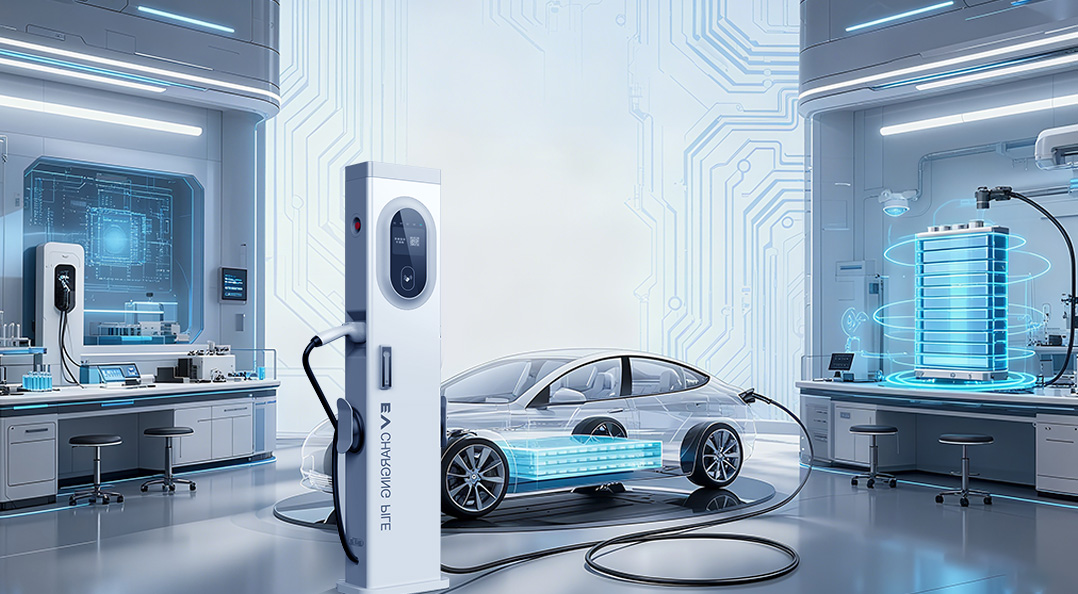
Compared to a Level 1 charger (which might only add 3–5 miles of range per hour), a Level 2 charger dramatically shortens your wait. For most drivers, it means going to sleep and waking up with a full battery.
Here’s a rough idea by model:
- Tesla Model 3: ~6 hours to jump from 20% to 80%
- Nissan Leaf Plus: ~7 hours
- Chevrolet Bolt EV: ~6.5 hours
- Ford Mustang Mach-E (11.5 kW unit): ~4 hours
For daily commuting, weekend trips, or city driving, a Level 2 charger can meet your needs—without needing public fast-charging stations.
Cost & Installation of a Level 2 EV Charging Station
Hardware Cost
Most mainstream Level 2 chargers fall in the $300–$1,000 range. Higher-end models include load-management, app-control, solar integration, and other smart features.
Installation Fees
Costs vary based on your home’s existing electrical setup:
- If you already have a 240-V outlet (like for a dryer): ~$300–$500
- If you need new wiring or panel upgrades: ~$800–$1,500
- Multi-unit or commercial installations often bring the cost per stall down.
Make sure your provider follows local standards (NEC, CE, etc.) to secure warranty and safety.
Energy Cost
Charging at home is far cheaper than filling a gas tank. Using an average U.S. electricity rate of $0.15 per kWh:
-
Charging a 60kWh battery from 20% to 80% costs about $5.40
-
Fully charging from 0–100% costs around $9.00
With off-peak rates or smart grid integration, you can cut that even lower — often below $0.10 per kWh.
In total, a typical Level 2 charging station installation costs $1,000–$2,000 upfront but pays off quickly in convenience, energy savings, and vehicle performance.
Level 2 vs Other Charging Options
EV charging comes in three main levels: Level 1, Level 2, and DC fast charging. Let’s compare:
| Charging Level | Voltage | Power Range | Miles Added per Hour | Typical Use Case |
|---|---|---|---|---|
| Level 1 | 120 V AC | 1.3–2.4 kW | 3–5 miles | Home backup, PHEV daily top-up |
| Level 2 | 240 V AC | 3.3–19.2 kW | 15–60 miles | Home, workplace, commercial main use |
| DC Fast | 200–1000 V DC | 50–350 kW | 60–300+ miles | Long trips, emergency top-ups |
Compared with Level 1, Level 2 is 5-8 times faster—ideal if you drive 50+ miles per day or own a higher-capacity battery EV.
Compared with DC fast, Level 2 offers better value for daily use: lower cost, gentler on your battery, and perfectly suitable for overnight or day-long charging.
Best Use Cases for Level 2 Charging Stations
Residential Charging
For homes with garages or driveways, residential Level 2 charging provides a seamless “park and plug” routine. Many users schedule charging overnight for off-peak rates, saving even more.
Workplace Charging
Companies offering workplace EV charging boost employee satisfaction and support sustainability goals. It’s also a simple way to meet ESG commitments while promoting green commuting.
Commercial and Retail Locations
Malls, hotels, and restaurants install Level 2 charging stations to attract EV drivers and encourage longer visits. Data shows EV customers spend 20% more during charging sessions.
Multi-Unit Residences
Apartments and townhouses are increasingly adding shared EV charging networks to improve property value and tenant appeal. Smart charging systems allow individual billing and access control for easy management.
Future Trends: Charging Standards Moving Toward Unity
The industry is shifting. The NACS (North American Charging Standard) originally from Tesla is now being adopted by major automakers like Ford, GM, BMW, Mercedes-Benz, Hyundai.
That means:
- New vehicles will support NACS out of the box
- Level 2 EV Chargers must support NACS or offer adapters
- Charging becomes simpler, more unified across brands
As a supplier, we are preparing. Our chargers are compatible with J1772, CCS1, and NACS standards—so you’re ready today and future-proof tomorrow.
Conclusion: Level 2 EV Charger — The Backbone of Everyday Electric Mobility
The Level 2 EV Charger has become the true backbone of modern electric driving. It strikes the perfect balance between charging speed, cost, and practicality — fast enough for daily use, yet affordable and easy to install. Whether for home garages, apartment complexes, office parks, or retail spaces, Level 2 charging stations are what make EV ownership simple and stress-free.
We’re proud to deliver high-performance, reliable charging solutions trusted by drivers and businesses across more than 100 countries.
At our 40,000 m² manufacturing facility, equipped with advanced German Trumpf laser cutters and CNC bending systems, every Level 2 charging station is built to meet strict international quality and charging safety standards (UL, CE). From design to delivery, precision and safety guide every step we take.
A Level 2 EV Charger isn’t just a home upgrade — it’s a smart investment in your driving future. It offers the flexibility to charge overnight, manage energy use, and keep your EV ready every morning without relying on public stations. For commercial sites, it helps attract EV drivers, extend customer stays, and support sustainability goals.
As EV adoption continues to rise worldwide, expanding Level 2 charging infrastructure will define how convenient and enjoyable the electric driving experience can be. It’s the quiet workhorse behind the clean energy movement — powering homes, businesses, and communities one charge at a time.
Looking to Partner?
If you’re a ev charging station manufacturer, property developer, or energy service provider, we’re ready to help you scale up.
Our smart EV chargers support J1772, CCS1, and NACS adapters, offer WiFi or 4G connectivity, and include OEM/ODM customization for your unique projects.
📩 Contact us today to get a free product brochure or learn more about our commercial partnership programs. Together, let’s build the future of charging — faster, smarter, and cleaner.
FAQ: Level 2 EV Charger Questions
1. What is a Level 2 EV Charger and how does it work?
A Level 2 EV Charger uses a 240V power supply — the same voltage as large home appliances — to charge your vehicle much faster than a standard Level 1 outlet. It safely delivers more power through a J1772 connector (or NACS adapter), allowing most EVs to fully charge overnight.
2. How fast does a Level 2 EV Charger charge?
Charging speed depends on the charger’s power output and your car’s on-board charger. Most Level 2 EV chargers add 25 to 40 miles of range per hour, meaning your EV is ready to go by morning.
3. How much does it cost to install a Level 2 EV Charger?
EV charger installation costs vary depending on your home’s wiring. If a 240V outlet is already available, installation may cost around $300–$500. If new wiring or a panel upgrade is required, it can range between $800–$1,500. It’s a one-time investment that pays off in convenience and long-term savings.
4. Is a Level 2 EV Charger worth it?
Yes. A Level 2 charging station saves time, lowers your cost per kWh, and makes home EV charging easy and reliable. It’s ideal for daily drivers who want to skip public charging stations.
5. Can I use a Level 2 EV Charger for both home and business?
Absolutely. Many smart EV chargers are designed for both residential and commercial use, supporting load management, remote monitoring, and payment systems — perfect for offices, parking lots, and retail locations.
[post_navigation]

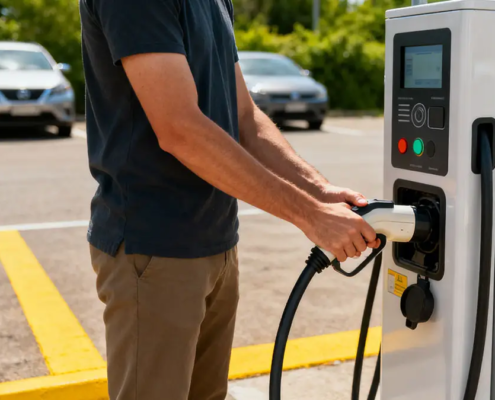
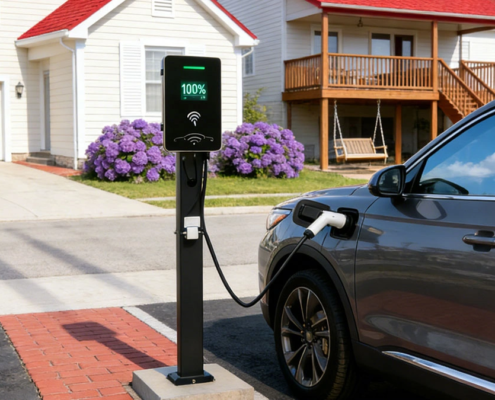
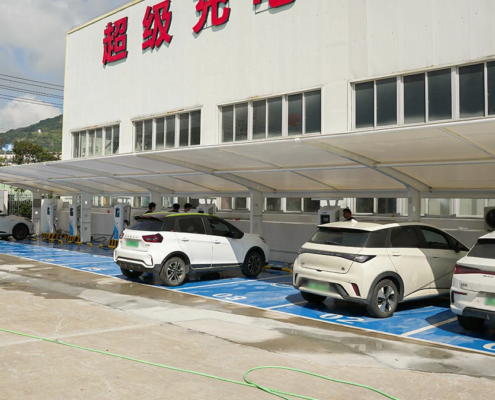



Leave a Reply
Want to join the discussion?Feel free to contribute!